Posts posted by Roburt
-
-
2 hours ago, Shinehead said: Bought a few soul packs from Oldies Unlimited, one I remember was a "Revilot" pack nothing much of note J.J. Barnes "Now She's Gone" and a copy of "Don't Be Sore At Me" we're in one.
Was always buying things blind back in the day, every market seemed to have a box of U.S. soul singles, probably why my taste in soul is of all types and i never binned much apart from funk.
The good thing about 'Oldies' packs was that the owner would price the 45's by hit status. Thus a Motown 45 that had been a hit by a major act @ the company would sell for a high price (by his standards), whereas a lesser known Motown act's 45 or a non-Motown Detroit soul 45 would be priced much cheaper. So buying from him was nearly always a pleasure for a committed soul fan.
-
I'm sure everyone on here has bought SOUL BOWL soul packs (either NS / general soul or both). You also used to get some decent stuff in lots of OLDIES UNLIMITED packs (though as they bought up 1000's of TK 45's, you'd get lots of TK labels if purchasing from them in the 80's). I know one lucky devil got a couple of Shrine 45's in an OLDIES soul pack sometime in the 70's.
-
Edited by Roburt
3 hours ago, Johnlloyd said: I would also buy blind anything recommended by Dave Godin.
Yes, you couldn't go far wrong buying sumat Dave recommended. Didn't know Tobi Legend when he just about forced me to buy a copy when visiting Soul City record shop in 1968.
In the 80's thru to recent times, I go on junking trips to London and dive into 3 of the branches of Record & Tape Exchange. With their clear-out stuff being so cheap (LP's from 30p, 12"ers from 20p and 45's from 10p -- in the 80's / 90's / 2000's) used to buy loads on spec. If much of what I bought was rubbish, it didn't matter at those prices. Plus, I did discover quite a few goodies in there.
I'm sure the guys who trawled US shops / warehouses / basements back in the 70's had to be buying blind with a lot of their purchases.
-
Posted ·
Edited by Roburt
- Popular Post
Another topic I thought would have been fully explored on here but I can't see a similar thread (might be overlooking one though).
LOTS OF DIFFERENT WAYS TO BUY BLIND OF COURSE; seeing something that 'looked right' on an auction listing back in the day. Being out 'junking' / create digging & seeing a 45 / LP that looked promising, hitting a US shop basement where lots of likely stuff lurks amongst the dross. FOR ME, I'd always take a risk if the price was right -- buying 3 x 45 'cheapies' you had no idea about was worth it if just one of them turned out to be a decent soul single.
In the early days of collecting soul (mid to late 60's for me), we had little knowledge & no real way to find more info to check out 'unknowns'. Back then UK released stuff made up 95% of what was available to us. So we'd start by picking stuff on likely labels (Chess, Stateside, Pye International, Vocalion, etc.). I'd also look for other stuff by artists I already knew. I loved the Sapphires "Got To Have Your Love" and so would bid low on any import 45's I found on lists by them. Won a copy of a UK 45 by them and got it thru the post. Shoved it on the turntable & listened ... it was a dancer (though I was hoping for a deep soul cut or big city ballad really) but it had stupid dance lyrics. As I had won other unknowns in the same auction, I threw it aside & listened to the other stuff. A mate @ college in Sheffield had started up a mobile disco & wanted soul dance stuff, so I sold him a few items I had 2 of or tracks that hadn't hit me hard. Thus a copy of "Slow Fizz" left me & joined his plays on nights he got bookings. HEYHO, you can't get it right all the time.
A BETTER EXPERIENCE FOR ME WAS ... got a similar auction listing in the late 60's & it had a more than a few 'unknowns' on it. One stood out -- It was a 45 on Mala by a guy called Gino Washington. The label was right & the guys name seemed promising, so I bid around 2/11d. Luckily I won the single & it duly arrived in the post. It was "I'll Be Around" by Gino Washington with the Altrasonics & the Versatones. It turned out to be a great buy as the other side was good too. I just loved the artist names on the label. but it set me off on a quest to find out who the ULTRASONICS & VERSATONES were ? Of course, we didn't have any data bases to check against & buying a US mag such as BILLBOARD was beyond us (we could hardly afford to buy Record Mirror). So knowledge of obscure US soul labels & their product was minimal, so I had to wait many years to find out.
Would others care to recount any of their similar experiences ?
-
I like modern stuff; not all of it of course but I try to keep an open mind when listening to new stuff. We're no longer in soul's 'golden age' (the 60's & 70's), so we can't expect great new tracks every week, but you only have to watch TV shows like THE VOICE to see plenty of gospel trained black UK singers who have the chops to cut good to great tracks. OUR STYLE of soul (both NS, deep soul., modern soul) isn't exactly what's in vogue though, many artists these days wanting to make tracks in hip hop or 'new R&B' styles. Must admit, much of this material leaves me cold. But those type of tracks aren't aimed at the type of soul fans that we are. Whereas the specialist soul label stuff (& I'd include Daptone in that category) is aimed / marketed towards us.
Back in the 60's / 70's lots of UK soul fans were quite snobbish -- if it wasn't a US recording it didn't fully fit the bill. I'd include myself in this bunch too, though the classier side of British stuff (Jimmy James & the Vagabonds 60's output , the Real Things "Children of the Ghetto") certainly ticked all the boxes for me. It can be the same today, with British recorded stuff not being given much credence.
ANYWAY, enough waffling ... I think some current UK recording teams can often come up with decent stuff. Mayfield Records, out of Portsmouth, try very hard to cut & release quality soul. Some of their past product has been decent -- I started taking notice after catching one of their acts (Gloria Miller) live in a Corfe Castle pub many moons ago. I've bought a few of their things since then (though obviously they have to make money to stay in business, so they cut many 'outside artists' & not all of their 'in-house' output would appeal here). They do though continue to put out decent stuff. The guy who runs the studio is an 'old soul' fan, so they do covers of some of his old faves ("Too Late To Turn Back Now" being a recent example of this). They also endeavour to make good original soul tracks.
Their Hannah Reem has a track out real soon; "Do You Know" -- to be included on the EP 'Sublime Soul Part 1 -- At present, a sample of this can only be heard on the label's Facebook page & the short clip of the song shows it to have promise (IMO). In the past they've put out vids of Hannah's work, he's one that was for promo purposes ...
-
Edited by Roburt
4 hours ago, Hooker1951 said: The first all nighters in my Home town Wigan was a club called Bluesville that was definitely going in 1963 the Room at the top followed circa 1965 as regards Soul music parallel to other Northern Towns Manchester, Sheffield etc etc Cheers Mick
Sheffield had a guy who was the 1st promoter of such clubs. He had 2, both were jazz clubs initially & though the 2nd (the Esquire) started out with jazz, it soon morphed into an R&B club. I don't think they held niters though (we had to wait for Pete Stringfellow's King Mojo for that pleasure) ... The Esquire booked all the top UK R&B outfits + visiting US blues / R&B acts. The top local acts were fronted by Joe Cocker & Dave Berry ...
-
Edited by Roburt
The Hollies started out as a recording group by doing lots of covers; "Stay", "Ain't That Just Like Me", "Searchin", "Just One Look", "You Better Move On", "It's In Her (HIS) Kiss", "Too Much Monkey Business", "You Must Believe Me", "Fortune Teller", "Mickey's Monkey" etc. A mainstay song in their live act in 1965 was "Ride Your Pony". . . . so they obviously followed the path of many UK Beat groups to get hits before eventually finding their own identity.
In similar fashion, the Searchers mined the US R&B songbook to get hits. They were out in Germany & went to watch Cliff Bennet perform. He included Jackie De Shannon's "Needles & Pins" in his live act. They like the song, learnt it, recorded it & had a big hit 45 as a result. I guess when they got back to the UK, their manager or record company got hold of a copy of Jackie's version from the publishers here ...
-
Edited by Roburt
On 25/07/2025 at 19:21, Happy Feet said: Hi Robert , what year where these posters from ?
Various I think but I'd have to check. Obviously they're from around 62/63/64. The Club Noreik niters were going strong in 1964 / 65 -- the Rolling Stones playing the club in Feb 64 (the Who were on in Jan 65). The Macador ad was from Jan 64 -- Stevie Wonder came to the UK for some TV shows in Dec 63 ('Ready Steady Go!' and 'Thank Your Lucky Stars.'), so I guess he was booked to play a few clubs in the London area at that time (though late Jan 64 seems a bit after his TV appearances which were late Dec 63).
-
Edited by Roburt
Some folk wanted to make being a musician their long term career even in the early years of the 'pop age' (though many weren't great players / singers in their early years). One such guy had a long & interesting career that encompassed some soul content along the way.
Nick Simper was a jobbing musician by trade who has been active in the pop group game since the early 1960's. He went professional in 1964 with the Regents (London based) and they toured all over in a small Bedford van. He was asked to step in as a short term member of the Birds not long afterwards. Next up he became a member of the Cyrano and The Bergeracs. In 1965 that outfit broke up, so it was back to the Regents. The group cut some tracks for Pye, but a cover of "She's About A Mover" on 45 went nowhere. Another 45 followed "Right Now" (Aug 65) on Piccadilly but that again failed to catch on.
In 1966, Johnny Kidd was looking for a new set of 'Pirates' and the Regents were given the job. The Pirates had enjoyed a 45 release in their own right back in early 64, but that was way before Nick became a member. He was however a 'Pirate' when "Send For That Girl" (HMV) was released in Nov 66. Any hopes of the single breaking through ended when Johnny Kidd was killed in a car crash in October 66 (after a gig at the Imperial Ballroom, Nelson). Bobby Hebb had a big hit with "Sunny" at the time, he was booked to tour the UK and needed a backing group. The Pirates were now leaderless & at a short end, so they were hired for the job.
It turned out that the tour was hard graft all the way as they zigzagged across England and Wales, and poor Bobby Hebb realized just what he had signed up for. In time-honoured fashion, the Pirates-Hebb showcase followed that bizarre route so beloved by British tour promoters, with no thought given to distances covered or almost impossible schedules which the ensemble had to try to keep up with. Good regular wages seemed fine in theory, but the reality was a hard slog of constant driving (with no motorways), eating in foul greasy spoon cafés and sleeping in lousy run-down guest houses. An example of their booked schedule was 10th December. A gig at the prestigious Imperial, Nelson, then onto the Queens Hall in Widnes & finally a late show @ the Dungeon, Nottingham on the same night.
With all the travelling involved it was impossible to play all three, so the Widnes gig was dropped. The audience at the Dungeon Club all-nighter gave Bobby Hebb a rapturous welcome & both he and the group ended the night in a satisfied mood. Bobby wasn't just a singer, he was skilled on guitar, bass, drums and spoons too -- a great all-rounder. Driving back to London straight after that show, he had to fight to keep awake. Just 4 hours sleep was possible before they were off again for a lunch-time show at Brixton’s Ram Jam Club. A rock musicians lifestyle back then wasn't glamorous, it was more of an assault course.
After that experience, Nick Semper moved on with his career. He joined the band backing Billie Davis for a while. He was also in the Flower Pot Men (Deram) before starting Deep Purple (who's 1st gig was in April 68). In 1969 was sacked by the group's manager and so he joined Marsha Hunt's backup band. When Hunt became pregnant, the band stopped touring and Simper re-organised the group as Warhorse (he also did some work with Screaming Lord Sutch in 1970). After that came Nick Simper's Dynamite, Nick Simper's Fandango & in the 90's; Quatermass II.
-
-
A couple of jazz club ads showing their move into R&B and away from jazz (neither poster is actually for niter sessions though) ...
THEN a niter starring the Hollies (a strange choice for a live act @ a niter, but then it's early timewise) ... PLUS a niter that finished @ 4.30 am ... not too convenient in my opinion as the great thing about a proper niter was that they'd throw you out not that long before public transport started up.
-
Edited by Roburt
Charles wrote quite a few songs & is still registered with BMI.
On some of these songs he's listed as Charles Jacob Hodges, on others just as plain Charles Hodges. He obviously used his other name in the past as the 45 label for the song "You Were Using Me" has him listed as Jacob Hodges. He has 39 songs listed with BMI, a couple written in conjunction with Johnny Northern.
Johnny was in the music biz for years as a singer, writer, producer & he collaborated with the likes of J R Bailey, Clyde Otis, Freddie Briggs, Rudy Clark, Horace Ott & more.
So Charles had lots of contacts in the music biz. The few that are still around probably know a bit about him.
Labels he was signed to were based out of 1697 Broadway -- this is the Ed Sullivan Theatre building (though on it's Broadway frontage, there were a few floors of offices above the theatre -- this is where the record companies were based). Of course, it was here that the Beatles played their famous performance on the Ed Sullivan Show that started their 'take over' of the US pop scene.
-
Edited by Roburt
11 hours ago, Rick Cooper said: I met up with some of the group a few years ago and asked them how they picked what to play. They said that they would listen to Radio Luxembourg and then choose the ones that sounded best for their audience ..... Sometimes they'd cover a proper US soul track if it got in the UK charts. Such as Knock on Wood, In The Midnight Hour and Sweet Soul Music.
I had been going to niters @ the Mojo & Nite Owl up to summer 67 (they were bringing in licensing for clubs that didn't sell booze that year & it had been said that the Mojo wouldn't be granted a license, so niters there were ended & Sunday alldayers begun). So we drifted off to the Nite Owl for our niter fix. But the Nite Owl was closed after the 1st weekend of December. We had made 2 visits to the Wheel ahead of that, but from early Dec 67 we defaulted to the Wheel niters.
GETTING TO MY POINT AT LAST ... the Wheel had live acts on at every niter (UK groups in the summer when audience numbers dipped due to folk going off on holiday). BUT from our first visit to the club (14th October) the thing I remember most was that just about every live act would do their version of "Knock On Wood". It got so we hated that part of each show (even though we liked the song).
Don't know how true it is (not musically trained) but I'm sure I read somewhere that Steve Cropper (working with Eddie Floyd) created the music to the verse of "Knock On Wood" by reversing the notes from the earlier Cropper song "In The Midnight Hour".
-
2 hours ago, Rick Scott said: Some very interesting posts and information there you guys and yes it is a tough one to call, even for us oldies on here ( i'm 74 btw) and the way info and promoting events was very different back then to what we have today and the old brain cells ain't what they used to be it has to be said

Flamingo is Very early & the adds full of information & and The Scene Club sounds very interesting too, so more info on that would be wonderful if anybody has any, thanks for replies up to now you guys, looking forwards anything else that may be out there. Rick
Think much of the history of the Scene Club was covered in an old thread ... 1960's London Mod / Soul Clubs
SCENEMAN posting the most informative info.
-
Edited by Roburt
Seems jazz groups still ruled the roost @ the Flamingo at the start of 1962. But during the early part of that year, jazz acts played the niter sessions BUT the acts on had started to also include R&B songs in their repertoire. Thus jazz front men like Earl Watson & Tommy Whittle were leading jazz outfits. Also on the bill were the likes of the Birch Heckstall Smith Quartet. Main man in this jazz group was Dick Heckstall Smith. He was soon to join Alexis Korner's Blues Incorporated. They cut the groundbreaking album 'R&B from the Marquee'. The following year, he was a founding member of that band's breakaway unit, the Graham Bond Organisation. So he became one of the UK's fore-runners in the R&B field (despite his 5 or so earlier years as a main man on the London jazz scene).
MARCH 1962 Flamingo niter ad ...
-
-
-
-
Edited by Roburt
- Popular Post
I have dozens & dozens signed @ Southport (& Morecambe) , Cleggy & Prestatyn, maybe even a couple from Fleetwood ... all on the sleeves (apart from a few early ones & a couple where the artist just did their own thing). Got Garnet Mimms autograph back in 1967 but as I didn't know I'd get access to his Mojo Club dressing room till a few minutes before the event happened, it's just on a scruffy bit of paper (though I have done my best to 'upgrade' it).
-
Edited by Roburt
SOUL SPOTLIGHT – BENNY GORDON by Steve Guarnori ....
A detailed piece documenting Benny's career & how Trude Heller assisted him with lots of live bookings at her clubs.
Trude was a person of influence in New York in the 60's and ran 2 night clubs there. The 1st of these she named after herself (it was located @ 9th & 6th Ave in Manhattan). The 2nd was her TRIK club. This was near Times Square @ 49th & Broadway. This corner had a long entertainment history (having earlier been home to the famous Club Zanzibar & then the Turf Restaurant & Bar). Trude Heller took it on in the mid 60's and renamed it the TRIK. It was a few steps from the Brill Building & not much further from 1650 Broadway (the Hit Factory building). So the TRIK was right at the centre of New York's music hub.
Trude booked all sorts of black acts, regular performers there being Benny Gordon & the Soul Brothers (see ad).
Like many NY Jews, Trude relocated to Florida as she got older. She moved to Palm Beach (now home to Trump) and opened yet another club (she again named this Trude Hellers but added Patio on the end). Of course, Benny Gordon was a regular attraction at this club too.
-
10 hours ago, Robbk said: UA/Liberty/Imperial/Minit also probably had separate promotional crew chiefs for each subsidiary. But they probably had one less level of management over the subsidiary label' promotional crew chief.
Johnny Rivers SOUL CITY label was first distributed by Liberty & then became part of Liberty (the 45's stating A PRODUCT OF LIBERTY RECORDS INC). I wonder if that label had it's own promotional guy/s too (or if Johhny or one of his staff carried out those tasks for the acts who had product out on the label).
-
Edited by Roburt
Anyone know if the various Mercury labels would have had a combined promo team or separate ones for each label; Mercury, Phillips, Fontana, Smash ?
As they put out so much product & each label had it's own specialties, I'd guess it would have made more sense to have separate teams (though guys dealing with radio DJ's over a specific area would source them suitable 45's from all of the labels I guess).
Also, I've made no mention of United Artists / Liberty up till now. They weren't exactly one of the top majors but they were a big outfit that mainly dealt in pop / rock material (though they did have some major soul acts: Bobby Womack, Gene McDaniels, Cornelius Brothers & Sister Rose, etc).
-
A black group who's 45 did comply with the usual 'way of working' back then -- though this was a bit later in early 1969 -- the Watts 103rd St Band.
Now this outfit made records that were 100% aimed at the black market -- members of the group went on to find a lot of success (Al McKay & James Gadson for instance). They had found their way to Warners via Bill Cosby (they backed him on his recordings & he was on Warners). Their big 45 hit was "Doing Your Thing" and this first broke on US radio. But it didn't break JUST on R&B radio stns, Top 40 stns were playlisting it as early as any R&B stns.
The first radio stns to get behind this 45 were WIBG (Philly - Top 40), WDAS (Philly - R&B), WYLD (NOla -- R&B), WRAW (Penn - Top 40), WEEX (Penn - Top 40) and WFIL (Philly - Top 40). So this single abviously was a major BREAK-OUT sound in the Philly & Pennsylvania area first and then it's popularity spread out across the States.
So the Warners promo team must have been mainly working it to Top 40's stns (though of course, they had the resources / money so the 45 would also have been sent out to every US R&B stn too).
-
If you check the above Detroit area chart from a Top 40 stn, one 45 jumps straight out at you ..
The Sport 45 by the Sonics (Four Sonics actually) seems out of place. But the song had recently been a bit pop hit for Dusty Springfield & so a DJ at this pop stn must have thought it a good idea to play a locally cut version of the song & it must have caught on with the stn's audience (hence it gaining a high placing on their chart) ...
The Sport label was of course a Detroit black owned indie label & so wouldn't have had the means to market their 45 to many radio stns at all, never mind a top local Top 40 stn.
SO THERE WERE ALWAYS EXCEPTIONS TO THE NORMAL RULES ...




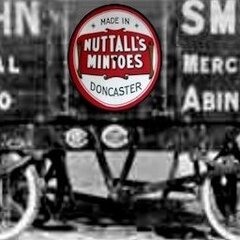

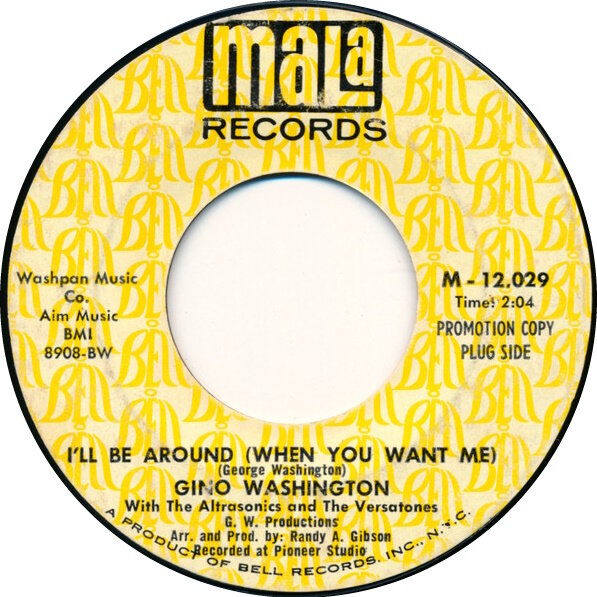
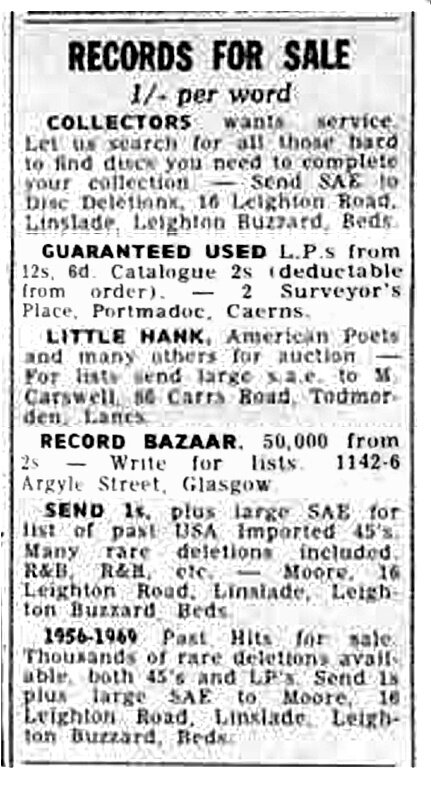
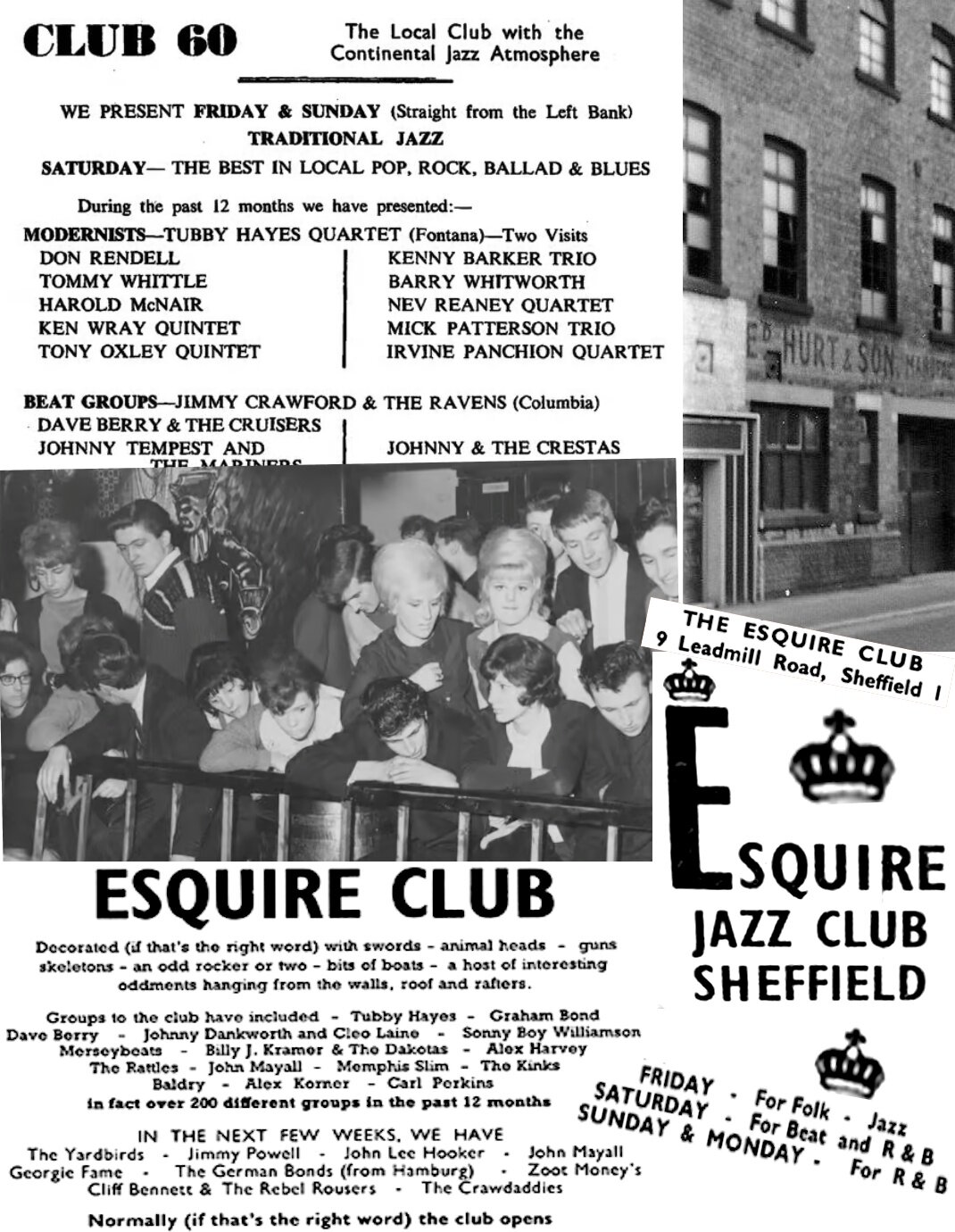
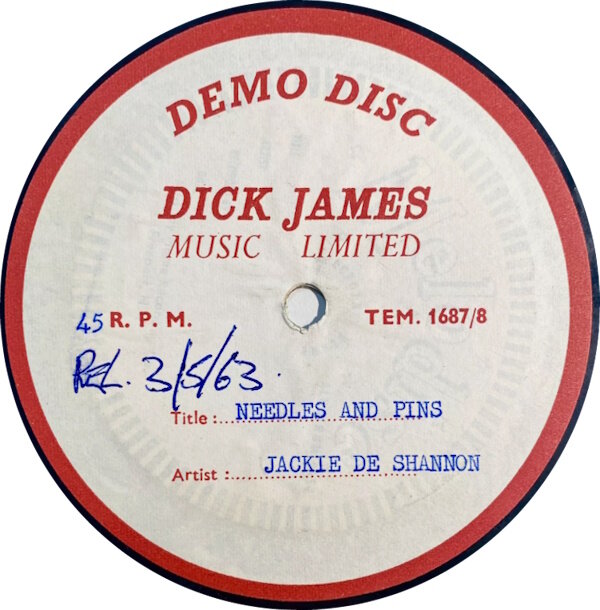
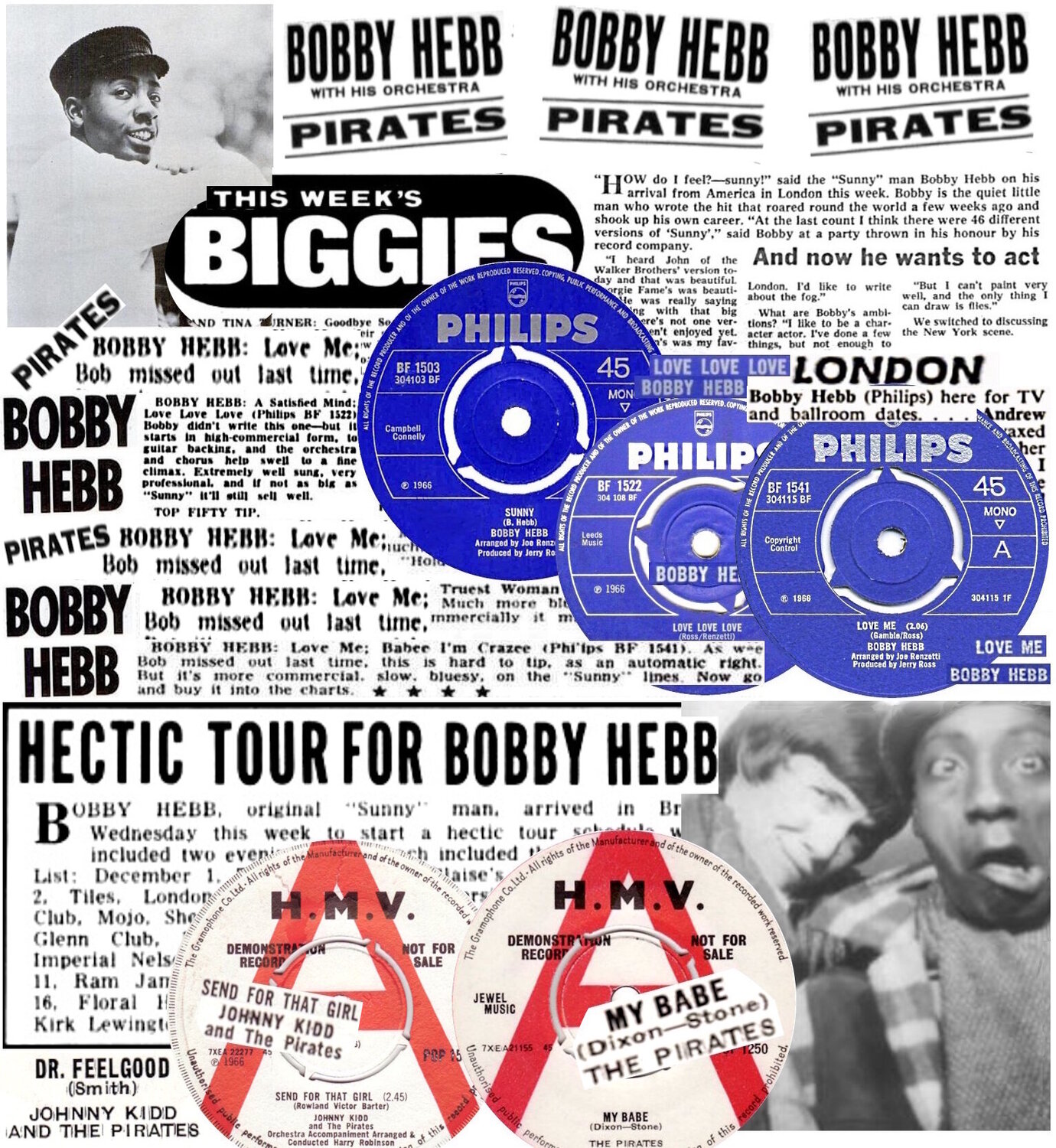
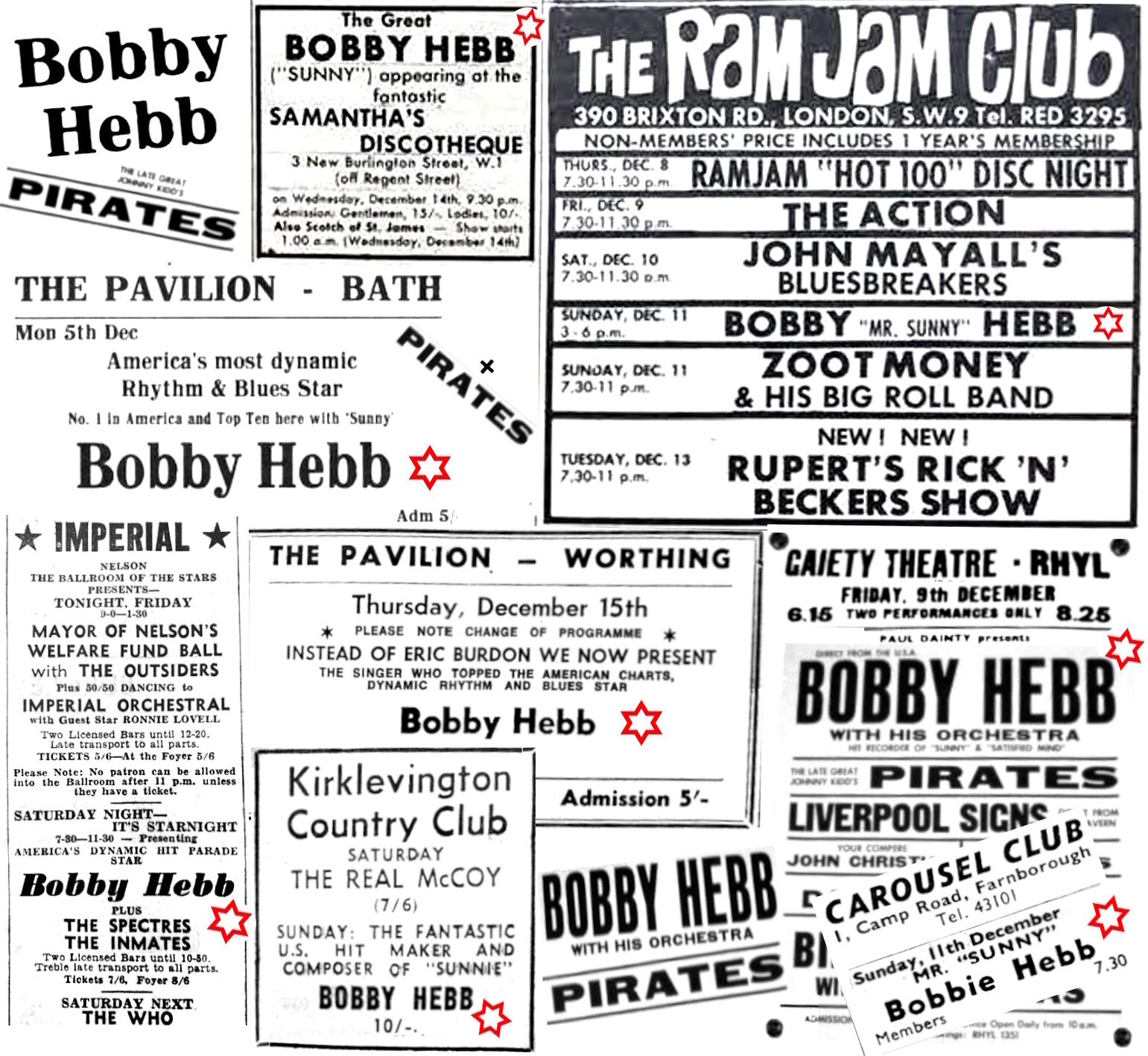
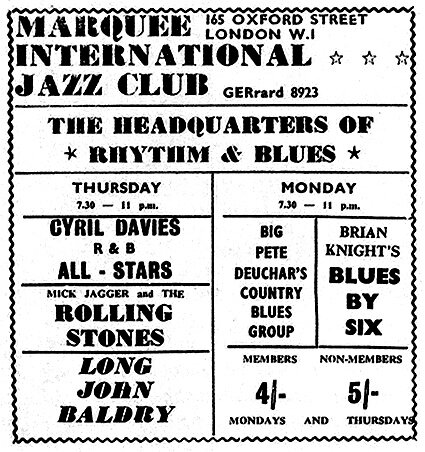
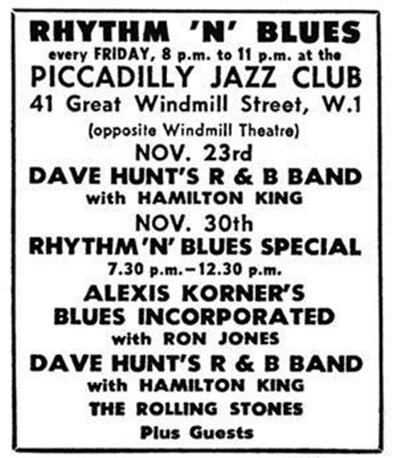
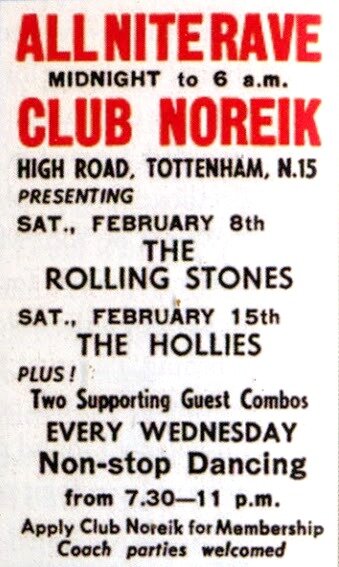
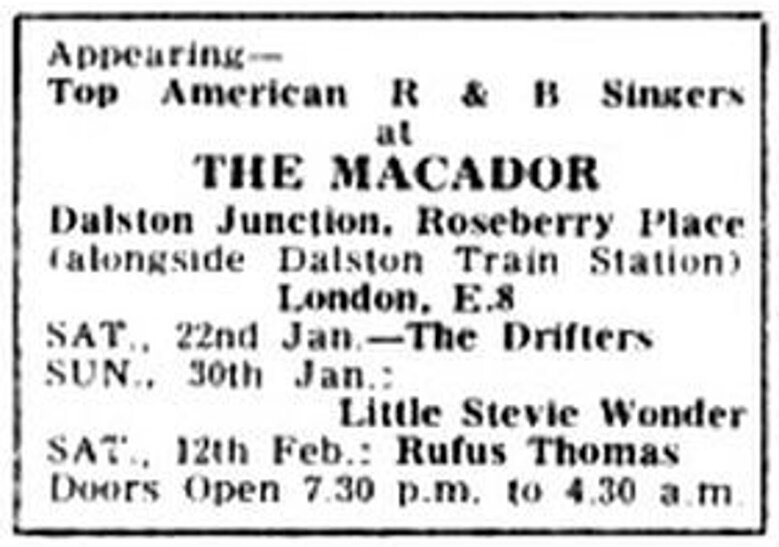
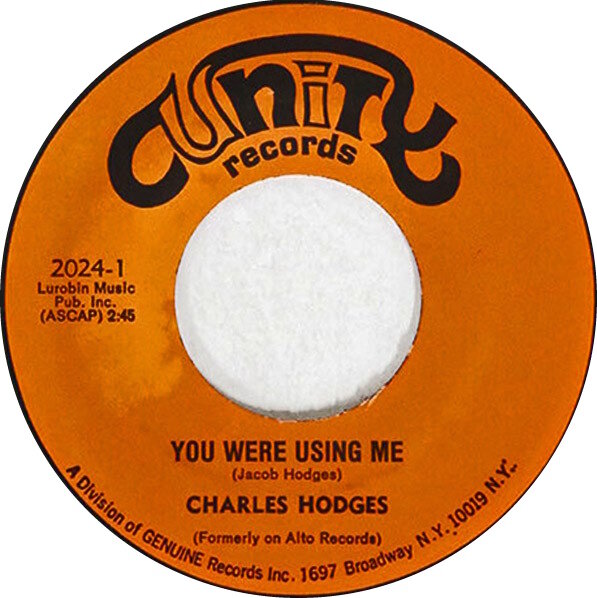
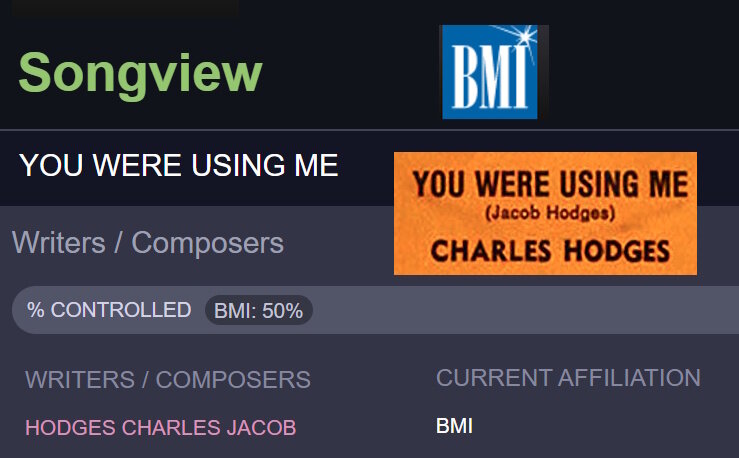
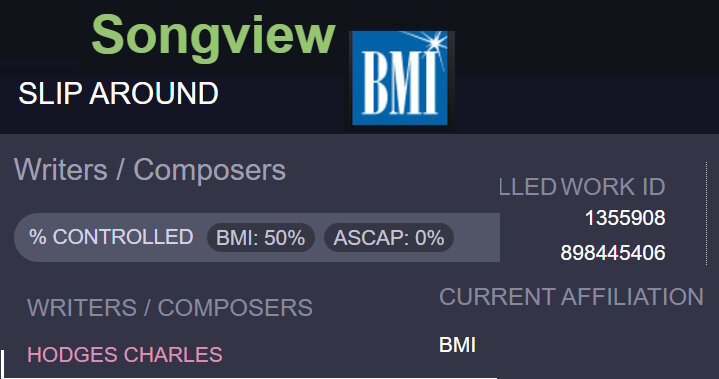
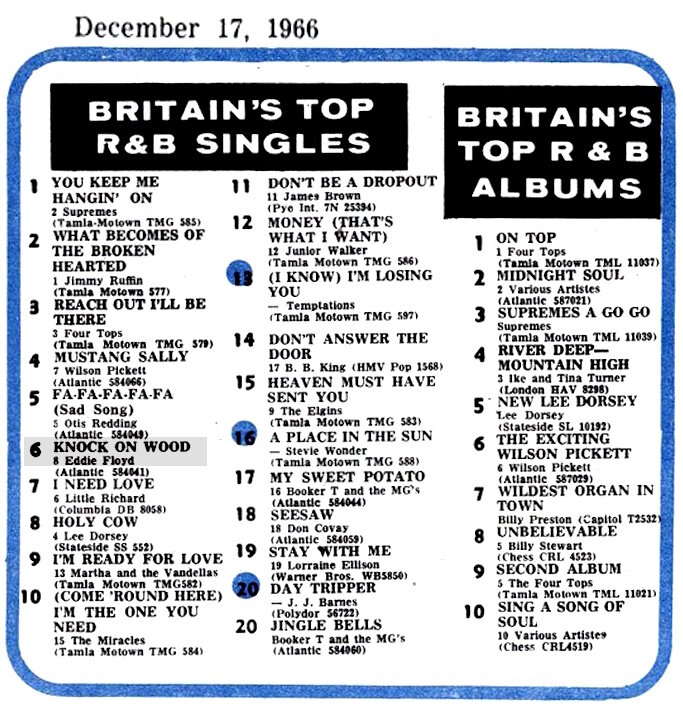
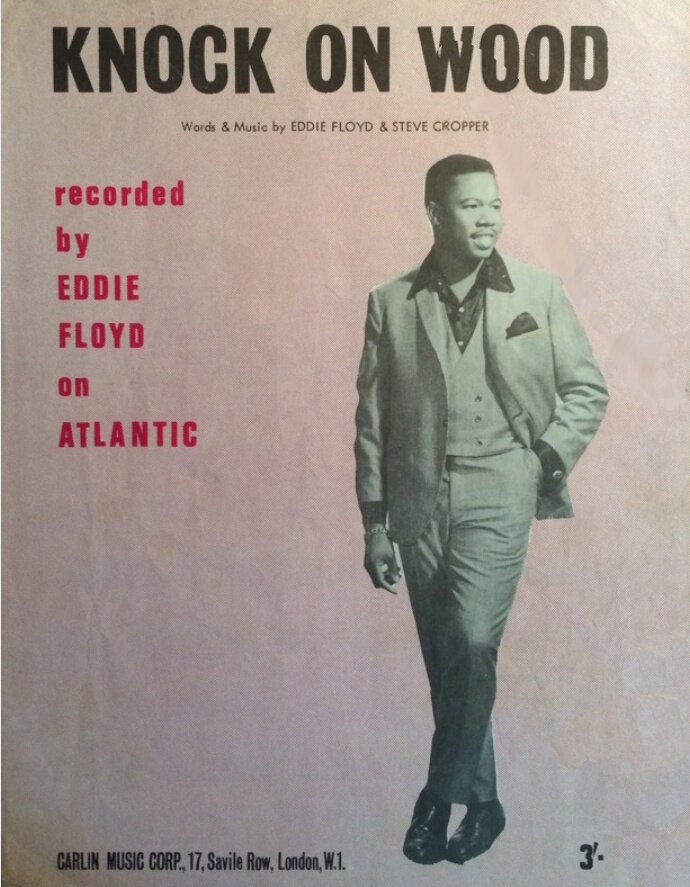

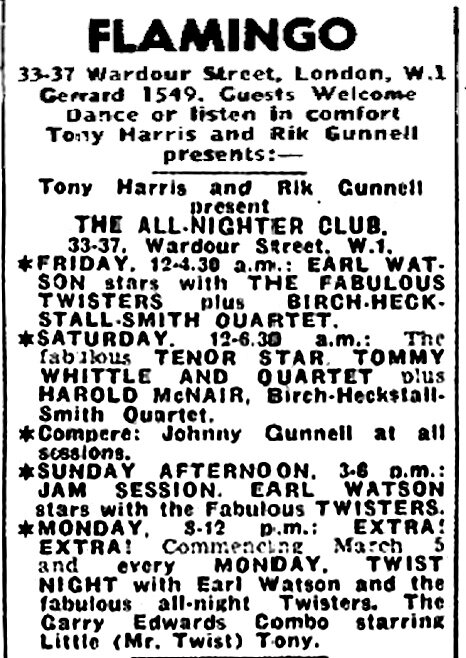
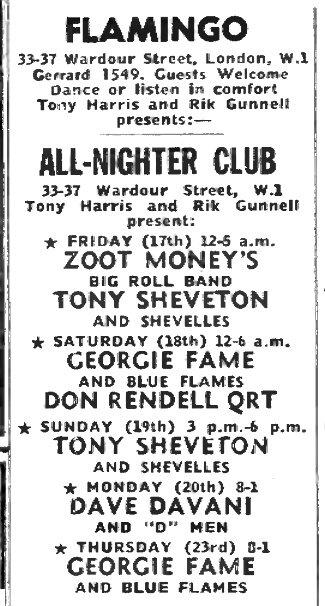
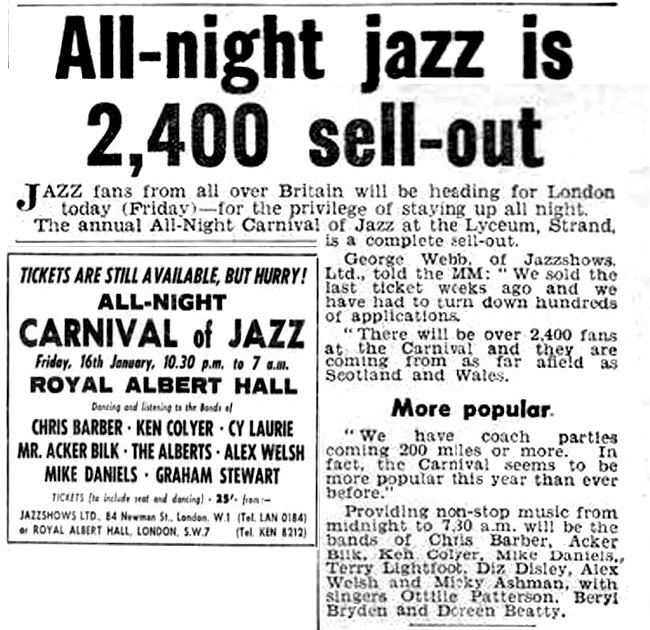
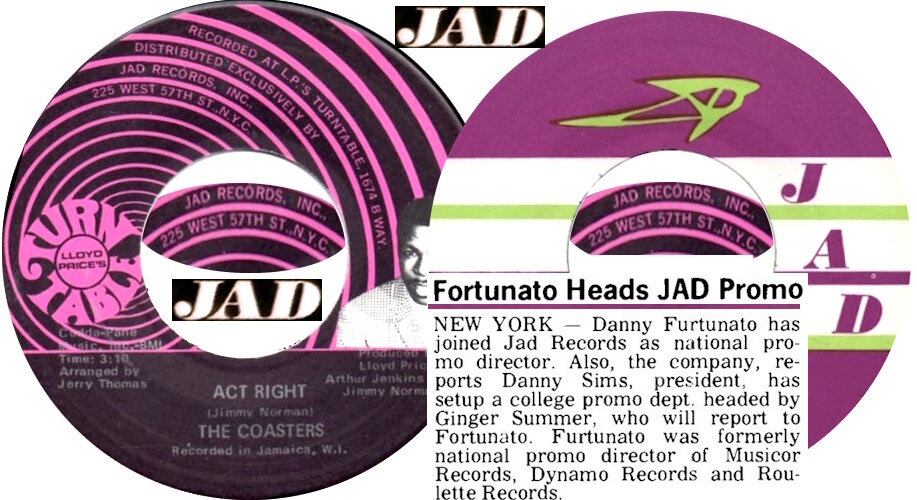
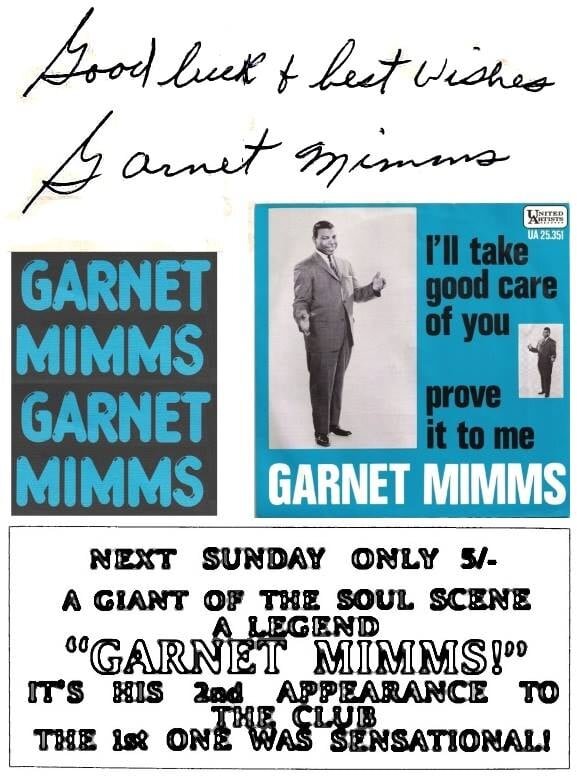
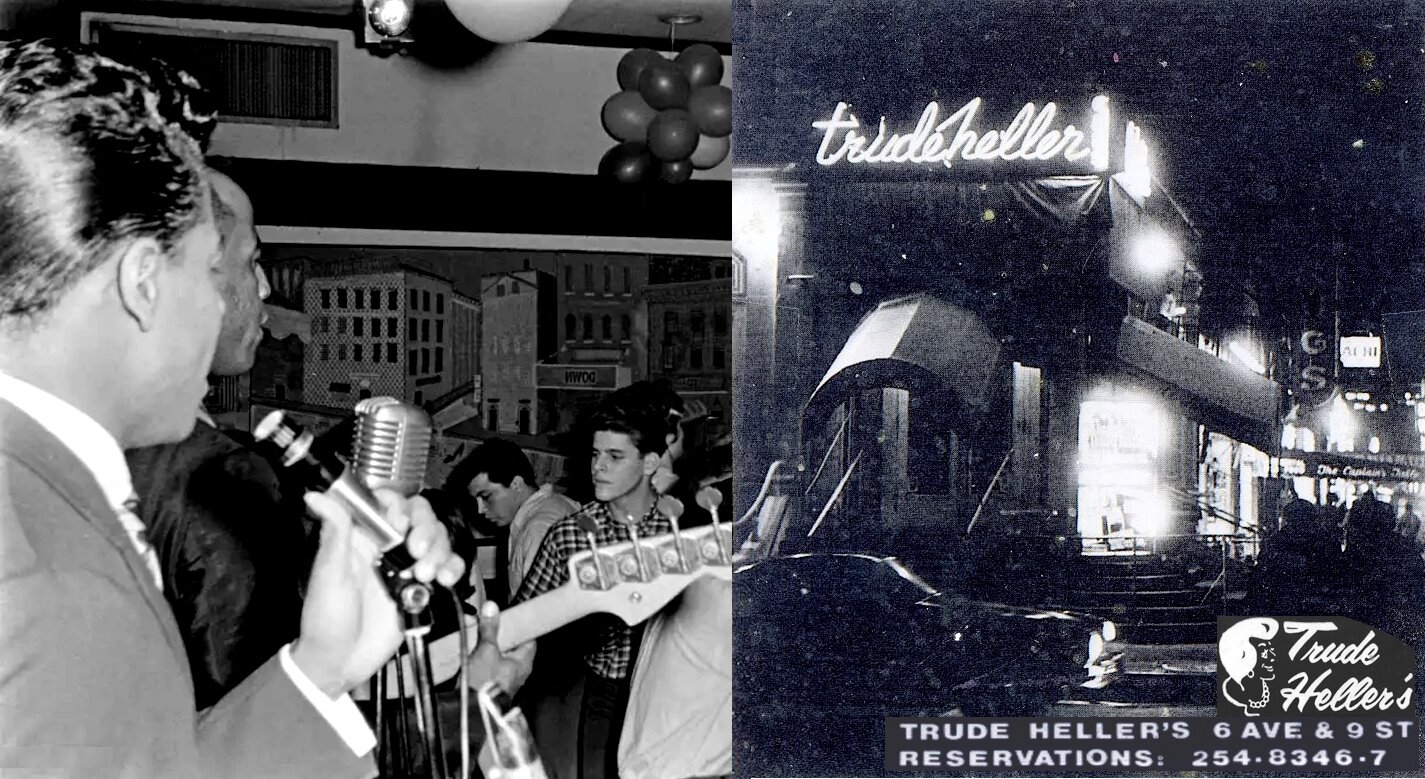
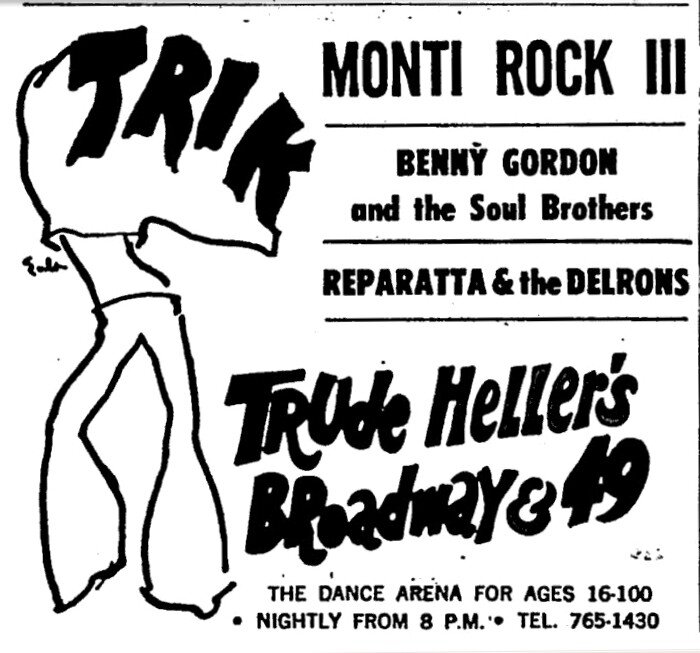
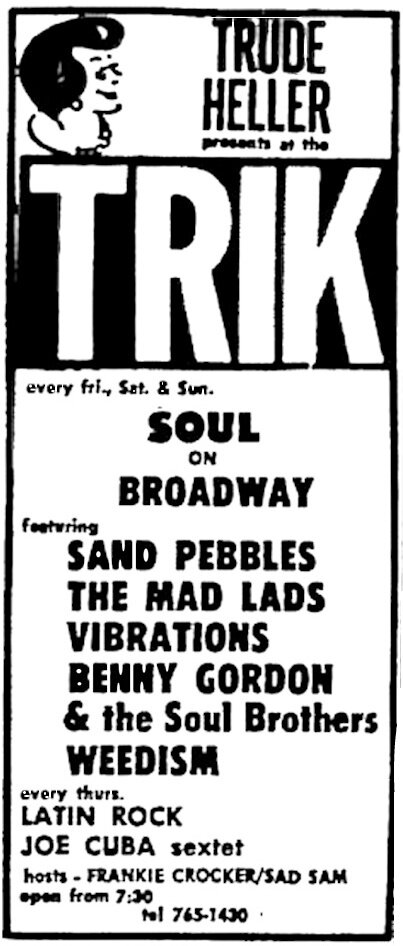
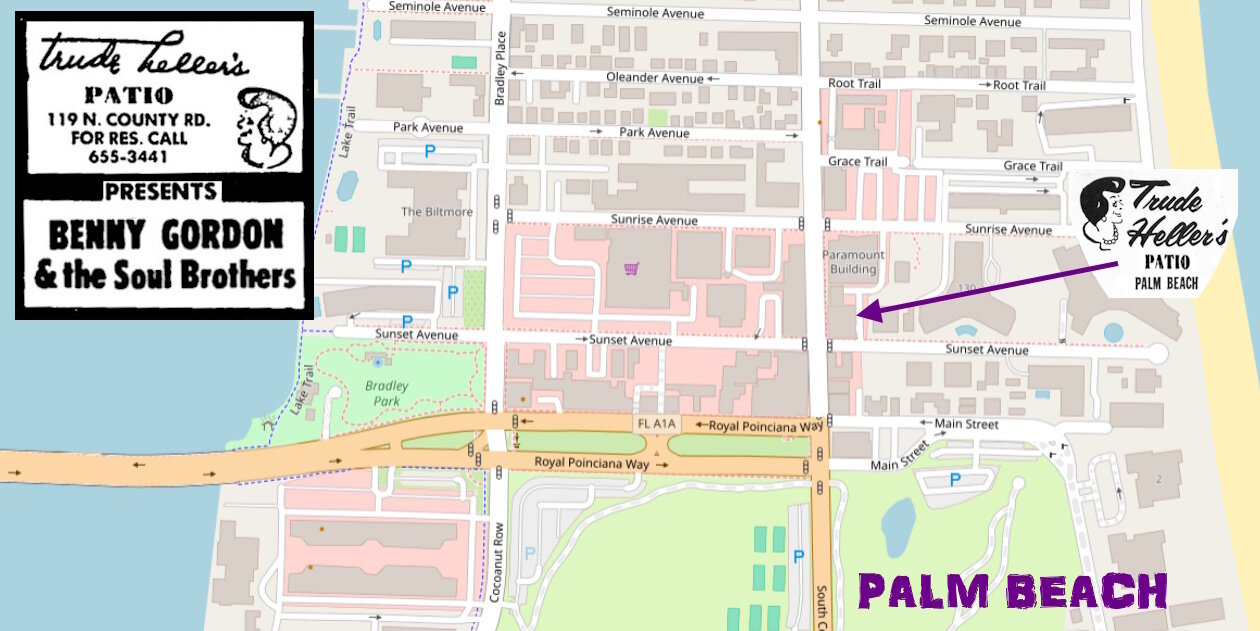
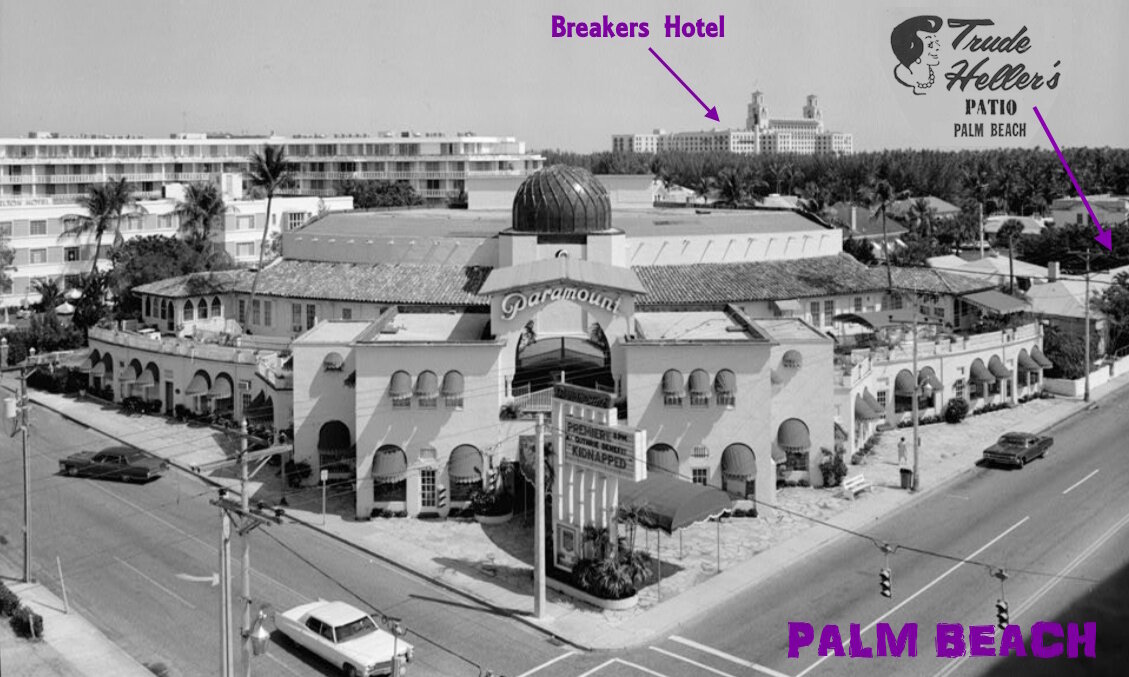
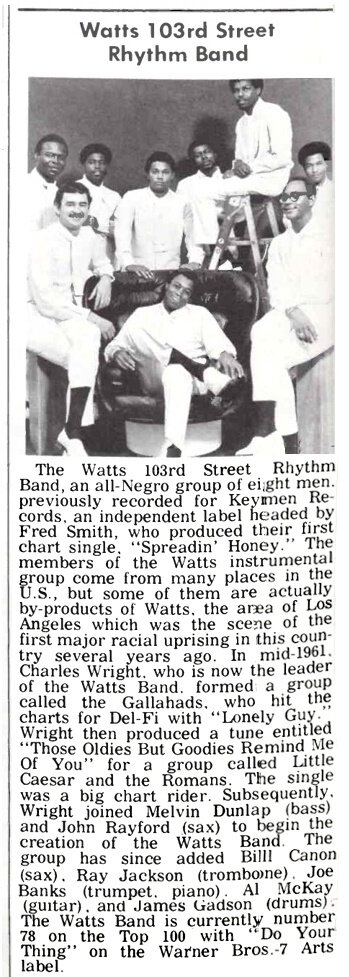
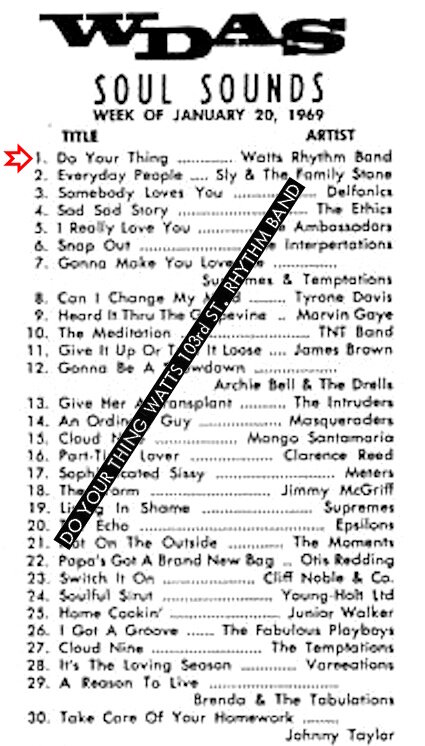

BUYING BLIND
in Look At Your Box
·
Edited by Roburt
I've told this tale before ... BUT it's worth retelling.
Lived in Worksop in the 80's & bought a car cheap from D C Cooks of Wath. It had a bodywork fault (they piled em high & sold em cheap), so I took it back for some attention. I had a couple of hours to kill so took a walk down Wath Rd towards Mexboro. Came upon a 2nd hand shop with a table outside on the pavement. He had some import (US) 45's out, so I looked thru em. They were cheap and mainly 60's stuff on MGM, Verve, etc (obviously old Bostock's stuff). Some were in those small label boxes of 20, so I opened each box up to see what the contents were. There was a Sam The Sham 45, a box of the Superiors (What Would I Do), and a few more similar items I didn't know. Left 16 of Superiors in the box, added a Sam the Sham and 3 other 'likely' items. Took them into the shop & asked how much if I buy the whole box of 20. £2 was his answer. NO, that's too much, I'll give you a quid says I. He accepted my offer and went on to tell me that 5+ years earlier he'd had a Sunday market stall & had bought loads of similar 45's to sell on the stall. These were just what he hadn't moved on at the time. So I left the shop a very happy guy. When I got home, none of the other 45's (including the Sam the Sham) appealed. So I wished I'd just left the full 20 copies of the Superiors in there and fetched those all home.
Mind you, having so many copies, I sold em off (below the then current value) to mates & other guys at local soul nights. I'd never have become a millionaire with my business nouse.
Similar story but earlier. Living in Donny & went junking around the market / Copley Rd areas. A 2nd hand shop on the corner of Copley Rd & Christchurch Rd had some boxes of singles. They all come from the same source & were mainly reggae 45's (I was still buying reggae versions of soul songs back then). Went thru the boxes & found a few copies of the Manhattans "That New Girl" on UK Carnival. It looked promising, so I bought a copy and a few reggae items. Got home, played "That New Girl" and loved it. NEVER DID go back to the shop to buy all the other copies of the 45 though even though they would have cost me just a few pence each (I'm definitely not millionaire material).